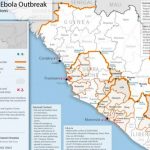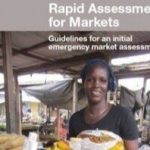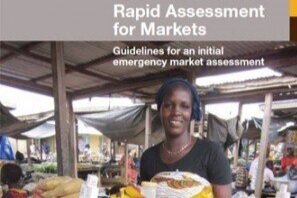
The Economic Impact of Health Crises: Lessons from Ebola
January 9, 2024
Improve Crisis Response by Understanding and Leveraging Markets – Tools
January 9, 2024Kim Beevers and Loris Shannon-Cooper
In times of crisis, governments and humanitarian actors often feel pressure to meet needs directly and immediately. But, this approach may actually undermine food security and harm households and markets – exacerbating crises rather than ameliorating them.
Without understanding the context and the challenge, no effort to respond can be done well. A rapid assessment is the first step for any response. Often, opportunities to leverage businesses, traders, and transporters – who are already priced to supply markets – are missed. Failing to involve these groups in humanitarian efforts results in higher costs, less reach, and longer downturns.
As Liberia considers its response to COVID-19, we look at two case studies that offer an alternative pathway for understanding and addressing rice access and availability for vulnerable groups.
Rice Market Case Study 1 – During the Ebola Virus Disease outbreak, a project in Sierra Leone found two main reasons for rice market failure: 1) broken linkages between farmers, traders, and buyers resulted in unsold and unpurchased rice; 2) high levels of free rice distribution from humanitarian agencies resulted in decreased demand for purchased rice. Both put farmers and agricultural production at risk in 2015.
In order to address this, the project partnered with a local rice processor to source rice from 2,300 farmers that had not previously traded with the company. The rice processor then processed, packaged and distributed rice – later winning contracts with the World Food Program (WFP) and local institutions to supply vulnerable communities with local rice. The project revived the local rice market and led to long-term trade relationships between farmers, processors, and large buyers.
Read more here.
Rice Market Case Study 2 – A project in South Sudan found that rice distributed by projects was often resold on markets at subsidized rates – ultimately discouraging local traders from selling rice and, in doing so, inhibiting long-term food availability and security for the very communities the project was aiming to help.
The risk that the project identified was not rice – rice was available in markets locally. Rather, the project identified that vulnerable groups did not have the financial means to purchase it. Instead of continuing to put the rice market and long-term food security at risk by undercutting markets and discouraging trade with giveaways, the project chose to assist households and traders with cash transfers.
In order to address the gap, the project provided households with monthly “unconditional” cash transfers over seven months to access preferred goods. The project also provided three months of cash transfers to a set of cash-strapped traders to help them restock and meet increased demand.
Read more here.
GROW Liberia © 2021 All rights reserved



